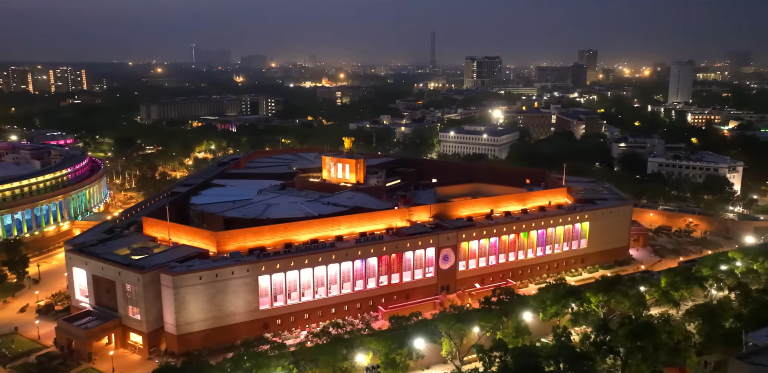Myths and facts about the Waqf (Amendment) Bill, 2025 passed in Parliament
April 05, 2025
New Delhi: The Waqf (Amendment) Bill, 2025, recently passed by India’s Parliament, introduces significant changes to the management and oversight of waqf properties—charitable endowments under Islamic law.
Here are some myths and facts about the bill:
Myth 1: Will Waqf properties be revoked?
Fact: No property that is registered under Waqf Act, 1995, prior to commencement of Waqf Act, 1995, as waqf will be revoked.
Explanation:
– Once a property is declared waqf, it is meant to stay that way permanently.
– The bill only clarifies rules for better management and transparency.
– It allows the District Collector to review properties that might be misclassified as waqf, especially if they are actually government property.
– Legitimate waqf properties remain protected.
Myth 2: Will there be no survey of Waqf properties?
Fact: There will be a survey.
Explanation:
– The Bill replaces the old role of the Survey Commissioner with the District Collector.
– The District Collector will conduct surveys using existing revenue procedures.
– This change aims to improve the accuracy of records without stopping the survey process.
Myth 3: Will non-Muslims become the majority on Waqf Boards?
Fact: No, the boards will include non-Muslims, but they will not form a majority.
Explanation:
– The Bill requires inclusion of 2 non-Muslims excluding ex-officio members as members in the Central Waqf Council and State Waqf Boards, allowing for a maximum of 4 non-Muslim members in the Council and maximum of 3 in the Waqf Board that at least two members on the Central Waqf Council and state boards be non-Muslim.
– The majority of members will still be from the Muslim community.
– This change is meant to add expertise and promote transparency without undermining community representation.
Myth 4: Will Muslims’ personal land be acquired under the new amendment?
Fact: No personal land will be acquired.
Explanation:
– The Bill applies only to properties that are declared waqf.
– It does not affect private or personal property that has not been donated as waqf.
– Only assets voluntarily and legally dedicated as waqf are covered by the new rules.
Myth 5: Will the government use this bill to take over waqf properties?
Fact: The Bill empowers an officer above the rank of District Collector the District Collector to review and verify if a government property has been wrongly classified as waqf—especially if it might actually be government property—but it does not authorize the seizure of legitimately declared waqf properties.
Myth 6: Does the bill allow non-Muslims to control or manage the wealth of the Muslim community?
Fact: While the amendment mandates that two members on the Central Waqf Council and State Boards shall be non-Muslim excluding ex-officio members allowing for a maximum of 4 non-Muslim members in the Council and maximum of 3 in the Waqf Board.
These members are added to bring in additional expertise and oversight. The majority of members remain from the Muslim community, thereby preserving community control over religious affairs.
Myth 7: Will the traditional status of historic waqf sites (such as mosques, dargahs, and graveyards) be affected?
Fact: The Bill does not interfere with the religious or historical character of waqf properties. Its aim is to enhance administrative transparency and curb fraudulent claims—not to alter the sacred nature of these sites.
Myth 8: Does the removal of the ‘waqf by user’ provision mean that long- established traditions will be lost?
Fact: The removal of this provision is designed to prevent unauthorized or erroneous claims over property. However, protection has been given to such Waqf by user properties (such as mosques, dargahs, and graveyards) which will remain as waqf properties except that the properties, wholly or in part, is in dispute or is a government property. It streamlines the registration process by ensuring that only properties formally declared as waqf are recognized—thereby reducing disputes while still respecting traditional waqf declarations.
“Waqf by user” refers to a situation where a property is treated as a waqf simply because it has been used for religious or charitable purposes over a long period—even if there hasn’t been a formal, legal declaration by the owner.
Myth 9: Is the bill intended to interfere with the community’s right to manage its own religious affairs?
Fact: The primary goal of the bill is to improve record-keeping, reduce mismanagement, and ensure accountability. It does not take away the Muslim community’s right to administer its own religious endowments; rather, it introduces a framework to ensure these properties are managed transparently and efficiently.
Recent Stories
- Jafrabad LNG FSRU Project 92.3% Complete; Deadline Sept 2026: Gujarat Govt
- ₹107 Crore Penalty Imposed on AMNS India Over Hazira Land Encroachment: Gujarat Govt
- DPR Process Underway for Kalpasar Project: Gujarat Govt
- PM Modi to visit Israel on February 25–26
- Centre Approves ₹647 Crore NH-56 Widening and Upgradation Project in Valsad
